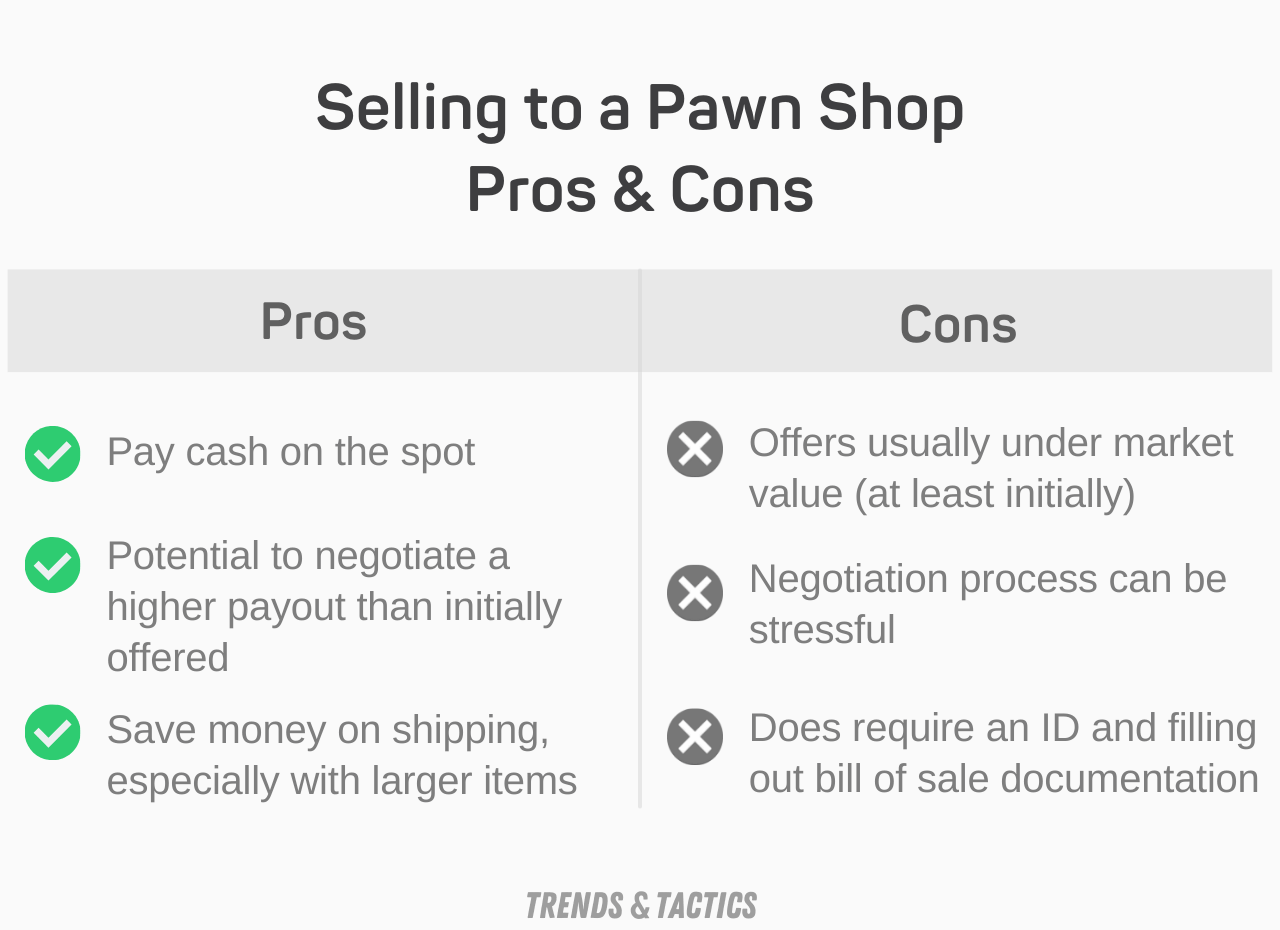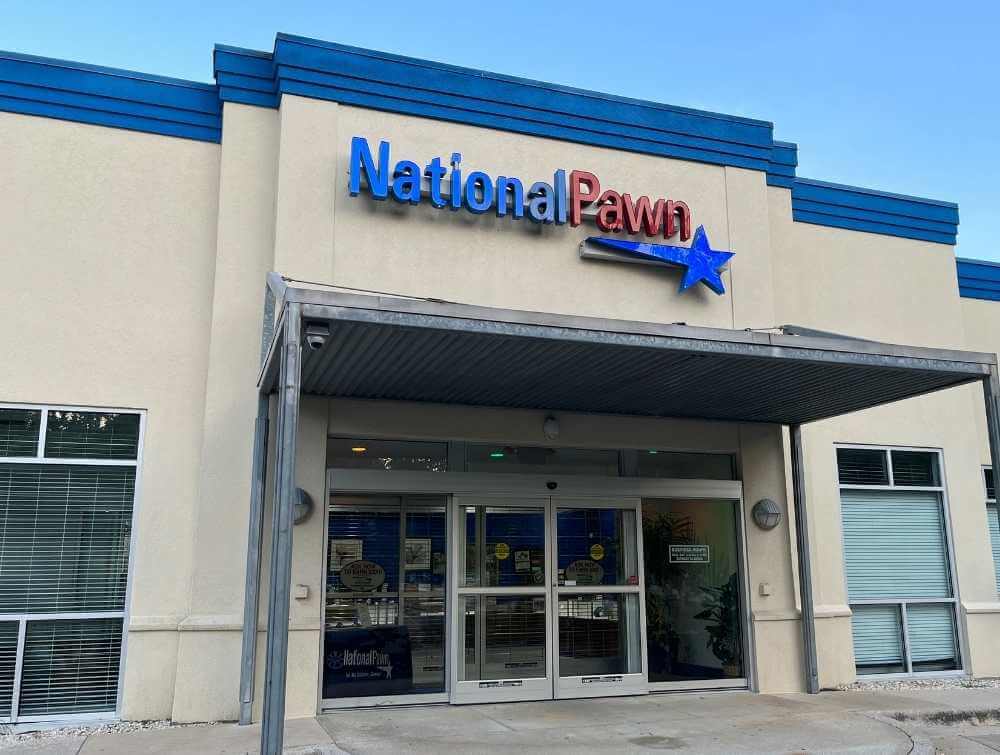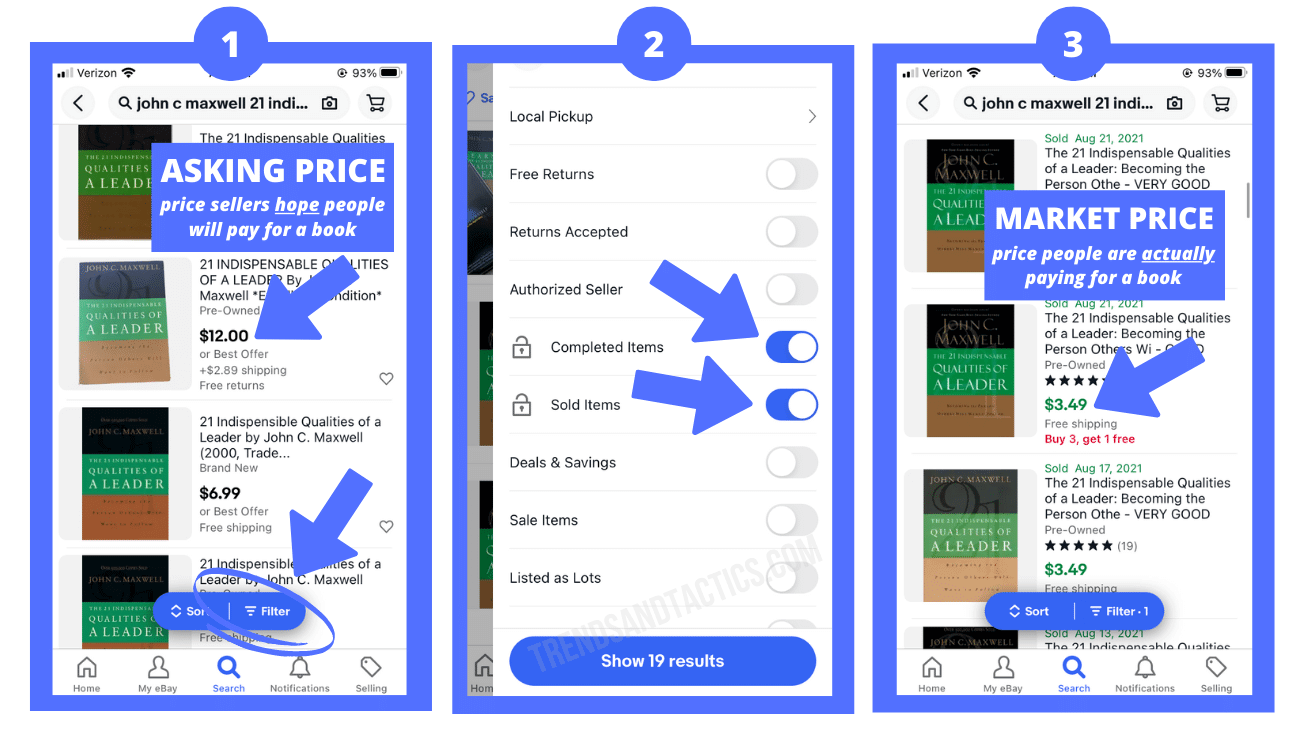Most people think you can’t sell to a pawn shop and get a good deal.
But this couldn’t be further from the truth, as long as you use the right strategies.
A few weeks ago, I brought in several items to my pawn shop and was initially offered $150 for the lot, but walked away with $300.
How did I do this?
I’ll share the exact strategies I used to double my payout from the pawn shop, so you can get top dollar for your trade-ins too.
How does selling at a pawn shop work?
Pawn shops acquire products in 2 ways, either from buying products that people sell to them directly, or by giving a temporary cash loan to someone in exchange for an item of value as collateral (called “pawning”).
In both cases, the pawn shop must assess the value of the item in question before making an offer. This is usually done by analyzing recent sales data from online marketplaces to sell things.
After determining the market value of the item, they make you a cash offer to purchase it. Unlike pawning (which is loan based), selling to a pawn shop is a transaction where they literally buy the item from you.
This is one of the biggest differences between pawning vs selling.

When selling to a pawn shop you have the opportunity to use negotiation strategies to get a higher payout for your item/s, which can lead to hundreds of extra dollars if you use the right strategies (covered in the next section).
To complete the process, you show your ID and fill out a bill of sale to finalize the transaction.
Tactic for Success:
Before selecting a pawn shop, read Google Reviews of shops in your in area to see what people say about offer quality. Some shops will be notorious for low ball offers, while others recognize the value in making fair offers. Picking the right pawn shop makes a huge difference in your payout.
How to negotiate at a pawn shop for the highest payout?

Although many people avoid negotiating, it’s not as difficult as it sounds, plus it can result in hundreds of extra dollars in your payout from pawn shops.
These are the exact strategies I use to double my offers from pawn shops.
1. Check Market Value Beforehand
Without having at least a general idea of the market value of your item, you’ll be negotiating with the pawn shop from a disadvantage.
Figuring out what your item is worth beforehand lets you determine if you’re getting a good deal.
If we were reselling antiques or selling an expensive watch, then of course we’d get estimates either online or from a professional before signing on the dotted line.
Selling to a pawn shop is no different.
A fast and easy way to check your item’s current market value is to search it on eBay, and then filter to “sold listings”. In fact, this is a key step in the process for how to earn money on eBay too.

The results reveal what people have actually paid for that item, plus this is how pawn shops determine market value too.
So, you’ll be one step ahead in the negotiation by already having an idea of the range you’ll be offered.
2. Get Them to Say a Number First
When it comes to negotiation at a pawn shop, or any negotiation for that matter, avoid saying a number first.
The first thing you’ll be asked at the pawn shop is “how much you lookin to get?”.
Answering this question is like showing your cards in poker.
Avoid saying a number first for these reasons:
- Their initial offer could’ve been higher than what you said – let’s say I’m selling the pawn shop a watch. After looking it over, they would pay $500 for it *but they haven’t said this out loud yet*. Instead, they ask how much you want, and you say $250. Do you think the pawn shop will accept, or still offer the $500 they were willing to pay?
- Gives them more negotiating power – if you say how much you want first, the pawn shop learns the top of your pricing range, and knows it can likely negotiate another 10-20% lower and still make the deal happen.
But if we don’t give a number first, what do we say?
The best reply is: “I didn’t have a number in mind”
They’ll often follow up with the same question, hoping you reveal a number.
In those situations, I just say the same thing again, and eventually they’ll say a number otherwise there’s no deal.
Tactic for Success
Negotiating has a tendency to make people feel uneasy, so it’s important to smile during the exchange and keep things light. By staying calm and confident people warm up to you, and will often cut you a better deal.
3. How to Lock in Your Fantastic Offer
You should now have an offer on the table from the pawn shop, but chances are, the offer is below your target number.
At this point, we’ll want to show *some* of our cards, and counter their offer with a number.
But the key is you don’t want to counter with your actual target number, because in negotiation you almost always meet somewhere in the middle.
In my case, they offered me $150 for my items, and I countered with $350 (although my target number was actually $300). These were profitable items to resell, but this strategy applies regardless of what you are selling.
It took several back and forth offers from there, but we eventually arrived at $300.
Best strategies to close a negotiation:
- Allow silence – although it sounds counterintuitive, allowing silence in a negotiation gives your counterpart time to process and cooperate with you. If you talk non-stop, it’s often a sign of desperation and your offer is unlikely to improve.
- Stay positive and upbeat – negotiation is about compromise. If you remain positive and upbeat, your counterpart will be open to better terms.
- Accept the possibility of no deal – in some cases, the pawn shop simply won’t make a strong enough offer, and we have to accept that. Fortunately, there are 11,000+ pawn shops in the US alone, so visiting another store is easy.
Wrapping Up
Knowing how to sell to a pawn shop effectively can be the difference of hundreds of dollars.
Hopefully these strategies help you get top dollar from your pawn store trade-ins.
John-Paul Cody has been an avid online seller for years, across platforms including eBay, Mercari, Craigslist, and more. He has a Bachelor's Degree in Economics from UNC Chapel Hill, and works in data analytics and marketing.






